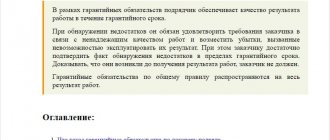State policy is aimed at protecting the rights of people from socially disadvantaged groups. One of these are disabled citizens. These are persons who, for various reasons, have temporarily or permanently lost the opportunity to work. This category of citizens has the right to receive the necessary care and government assistance in the form of social payments and benefits. The disability status must be confirmed by documents and a medical report.
Who is considered a disabled heir?
Disabled citizens are people who have a number of special rights. They can expect to receive inheritance according to legal grounds. The main conditions are:
- if the person was fully supported for at least one year before the moment of death. It is not taken into account whether they lived together or not,
- in the absence of family ties between the deceased and the dependent, the right to inheritance is possible if they have lived together for more than a year,
- if there are no relatives, the disabled citizen becomes the heir of the last line.
Please note : the legislative acts of the Russian Federation do not stipulate the conditions for obtaining property for dependents. Therefore, you basically need to prove your status in court.
Payment amount
The state provides 2 types of pensions for pensioners: insurance (labor) and social.
A mandatory condition for insurance is more than 5 years of experience. The social pension is intended for persons whose work experience is less than 5 years.
It is worth noting that in cases where the amount of the accrued pension is less than the established minimum subsistence level provided for in the region of residence, the pensioner has the right to a federal or social supplement, which eliminates this difference.
Factors that determine the amount of payments:
- Insurance experience. This is the sum of all work periods. A mandatory condition is the deduction of contributions to the Pension Fund of the Russian Federation throughout the working life.
- Individual pension coefficient. It is calculated based on contributions to the Pension Fund of the Russian Federation and the duration of work.
- The type of pension provision chosen by the citizen in the Compulsory Pension Insurance system.
- Coefficients provided by the state.
In the event of the loss of one breadwinner, a monthly fixed payment is provided, which currently amounts to 2279 rubles 47 kopecks, and 4558 rubles 94 kopecks in the event of the loss of both parents for each child.
Categories of disabled people
There are several categories of the disabled population:
- old age pensioners,
- disabled people of groups 1 and 2. If a person has group 3, his disability depends on the course of the disease,
- citizen under 16 years of age,
- children with disabilities,
- students of colleges, technical schools, institutes, universities and academies, if they are full-time students,
Important : foreign educational institutions are also considered. Persons studying in the institutions listed above receive the status of disabled people until the age of 23.
- small northern peoples,
- persons deprived of one or two guardians.
Read also: List of benefits for military pensioners: who can receive and how to apply
Legal grounds for recognizing incapacity for work
Disabled citizens are:
- Minors who have not reached 16 years of age, because they are not able to fully work and demonstrate working capacity.
- For students studying at a secondary or higher educational institution (colleges, technical schools, academies, universities and institutes), full-time study is a prerequisite.
- Disabled people of the first and second groups, the corresponding conclusion is established in accordance with the law by doctors and medical and social examination organizations.
- Disabled people of the third group may be recognized as disabled based on the general complexity and characteristics of the disease.
- Pensioners by age: in accordance with this legislation, the threshold for women is 55 years old, for men - 60. People living in the Far North retire five years earlier; they are not able to engage in labor activity while receiving a pension. However, in this area, both in theory and in practice, a lot of controversy arises. Workers and scientists often ask that working pensioners also be recognized as disabled.
The state of disability and its period are determined in a certificate that confirms the disability in accordance with the laws. It is issued by federal organizations of medical and social examination. In Russia, pensions are provided to disabled citizens.
Disability by age in the Russian Federation
Disability is a legal concept that does not describe the physical ability to work. The status of disability does not prohibit work; for example, there are cases when disabled people of group 1 work.
The following are considered disabled by age:
- minors under 18 years of age. But if children continue their full-time education in educational institutions, the disability status continues until the age of 23,
- persons who have reached retirement age.
Disability concept
There is a concept of disability, introduced during the USSR in 1966. The document explains who belongs to this category of people. According to it, disabled citizens are all pensioners who have reached retirement age and receive benefits. This category also includes people who have the first, second and third groups of pensioners, regardless of whether they are assigned a pension benefit or not. Disabled citizens include children under the age of majority.
Disability is confirmed by a notary upon presentation of a document confirming the identity of the citizen, a pension certificate and a certificate from the SEC.
How to confirm disability and who has the right to do so?
The Civil Code of the Russian Federation does not clearly define the criteria for obtaining disability status, so the registration process is quite problematic. In some situations, citizens must prove their status in court.
Legal incapacity is the inability to carry out work or a limitation that is associated with the presence of a physical disability. This is the reason why a person cannot provide for himself financially and receive income. However, he has certain rights.
During the court hearing, it is necessary to indicate the cause or circumstances of the loss of ability to work. Human disability situations are, from a legal perspective, a highly controversial issue.
Citizens of retirement age are automatically granted a disability status, and they do not have to work. This category of people is entitled to pension payments.
What is disability
The law does not define the concept of disability, but establishes the amount of benefits and the procedure for other payments if people are temporarily or permanently disabled.
There are two forms of this concept:
- Temporary – it is characterized by the loss of work skills, which are restored over time.
- Permanent – loss of labor functions indefinitely.
Degree of conservation:
- partially: the concept assumes that a person works, but he can only perform certain functions;
- completely: a person is limited in his capabilities, he cannot perform work duties, regardless of the load.
By type of performance of labor duties, incapacity for work is divided:
- professional: means that a person cannot work only in a specific area, which, according to the conditions of work, is contraindicated for him (performing work duties in a hot shop);
- general: a person cannot perform any labor functions, which is associated with an unsatisfactory state of health, a threat to the lives of people around him, for example, in the presence of a disease of viral etiology.
Most often, employers are faced with such a form as temporary disability due to a specific disease.
Changes in disability status
In the Soviet Union there was a law that the heirs of the first priority were disabled persons, and they had advantages over able-bodied citizens. But recently a new legislative document came into force, according to which the rules for establishing inheritance rights were changed. In accordance with the amendments, the disabled population does not have any advantages in receiving an inheritance; they have the same rights as other heirs if they have lived as a dependent for more than a year. It is worth noting that place of residence is not an important factor.
Types of disability
There is no concept of temporary disability in the legislation of the Russian Federation. The law establishes the types and forms of payment for sick leave, as well as benefits for specific categories, depending on the type of disability.
Kinds:
TEMPORARY PERMANENT
| partial | full | partial | full |
| full work activity cannot be carried out: a person requires a lighter version of work | The patient cannot perform any work; special care is required | 3 group | disability: 1st and 2nd group |
Disability groups are assigned depending on the degree of loss of ability to work, as well as to care for oneself independently. There are 3 groups:
- First: the ability to maintain oneself in proper condition is completely lost. A person depends on the help of family and friends. Unable to move independently. In some cases, disorientation in time and space may be noted. A person sometimes does not communicate with people, and also cannot control himself.
- Second: a person partially needs care, since the ability to self-care has not been completely lost. He can move, but with special devices. The ability to carry out professional activities has been lost, although certain types of work are available to a group 2 disabled person. He can look for a job and get one if his health condition allows it. If we are talking about a child, then with group 2 he may lose the ability to learn, or he may do it according to an individual program. Orientation in space and time can be carried out both independently and with the help of strangers.
- The third group differs from the previous ones in that it is a working group. A person orients himself in space, can move independently and communicate with other people. The ability to learn is preserved, but he needs a special regime and special help from teachers. People with this disability group cannot work in difficult and harmful working conditions, however, they perform a certain amount. In some cases, a person cannot quickly analyze the information received, since this requires a little more time compared to a healthy person.
Mandatory share of a pensioner
The disabled population is citizens who have reached retirement age, stopped working and are receiving a pension. But in some situations, this status can be obtained by persons of retirement age who continue to be actively employed.
Read also: What disability group can be given for liver diseases: cirrhosis
Who is considered disabled?
Disabled citizens are those people who do not have the ability to work for a long time, sometimes even since childhood. Usually such people fully support their family. They are called dependents. In other words, these are those persons who live on the full financial support of their family members or other persons. Citizens caring for disabled citizens regularly receive sponsorship from the state to provide for them. Thanks to this help they live.
Caring for disabled citizens
The legislation clearly establishes the period of care for dependents. Parents or persons replacing them are obliged to care for children until they reach the age of 18, and in the case of study, until the age of 23.
Parents, children or family members provide direct care for the disabled person. If there are no relatives, care must be provided by the state. Citizens of all disability groups have the right to receive monthly benefits and payments. The pension is calculated individually and comes from the state budget.
Payments for caring for disabled persons are made in accordance with the presidential decree:
- every month the costs are returned to citizens who care for disabled people of group 1, children with disabilities, minors and the elderly,
- compensation payments to all persons caring for disabled people, which go together with the disability pension,
- citizens who provide care receive compensation.
Payments
According to the decree of the head of the Russian Federation dated December 26, 2006 No. 1455 “On compensation payments,” there are several options for benefits.
- Benefits for citizens living in the territory of the Russian Federation and caring for a disabled citizen, namely a disabled person of the first group, disabled children, elderly people who need third-party care.
- Compensation for pensions, which is prescribed for payments to disabled people.
- Caring for a disabled citizen is paid.
All payments are established by the department that distributes and pays pensions to the disabled population.
How are payments determined?
The state provides financial assistance to the disabled population. To complete it, you must submit the following documents:
- two statements. One from the disabled citizen, and the second from the person who will care for him. The application can be written personally by the disabled citizen or his representative,
- document from the pension fund that the person does not receive pension payments,
- a certificate confirming that the disabled person does not receive unemployment benefits,
- passport,
- the caregiver provides a work book. And in case of full-time study, a certificate of study.
Payments are made for previous years, but not more than for 3 years. This benefit is applied for by citizens who have not previously applied to special authorities to receive benefits.
Who else can receive benefits?
In addition, a non-working citizen can receive a payment if he has the following security:
- a disabled child under 18 years of age;
- a citizen who has reached the age of 80;
- an elderly person who, due to health reasons, cannot take care of himself independently.
In conclusion, I would like to note that disabled citizens are those who cannot work due to old age or health problems. It is these people who have the right to claim care for them by an able-bodied person who, by law, is entitled to receive appropriate payments. However, the disabled should not be confused with dependents. The latter live off the provision of others. Find out more about your rights and the benefits you are entitled to from the state. If you don't take care of yourself, no one will.
Social pensions for disabled citizens
The following have the right to receive a social pension:
- disabled people regardless of group,
- children with disabilities,
- children under 18 years of age,
- pensioners of small peoples of the North,
- persons who have reached retirement age.
Please note : that the social pension will not be assigned to pensioners who continue to work.
It is also worth noting that in order to receive government assistance, citizens must permanently reside in the Russian Federation.
Read also: Licensing procedure for pharmaceutical activities: regulatory documents
The size of the social pension for disabled citizens from April 2019 will be:
- pensioners, representatives of northern peoples 5304.57 rubles,
- disabled children and children with disabilities 12,730.82 rubles,
- disabled people of the first group 10,609.17 rubles,
- disabled people of the second group 5304.57 rubles,
- disabled people of the third group 4508.92 rubles,
- persons left without guardianship 10,609.17 rubles.
Basic concept
A disabled citizen is a legally registered resident who does not have the physical ability to work or has other nuances that do not allow him to receive a permanent income.
The status of a disabled person can be obtained at any age, both as a child and as an adult.
There is another concept that defines a person who does not carry out any activity - this is a dependent. Dependents are citizens who do not work for a long time and live at the expense of relatives.
Please note: of course, passive income in the form of rental housing, working from home, handicrafts and other activities are considered participation in the economic activity of the country, therefore such citizens are not considered dependents.
Groups of disabled dependents:
- Pensioners. This includes old-age pensioners (in the Russian Federation, the retirement age for men is 60 years, and for women 55) and citizens who retired early (Ministry of Internal Affairs employees, radiologists, etc.). Of course, a pensioner can continue to work even full-time, without losing his pension contributions.
- Disabled people. In order to obtain the “Disabled” status, it is necessary to undergo a medical examination and obtain a commission resolution. Only after receiving all the certificates does a citizen have the right to apply for benefits. If a child is disabled, a parent or guardian represents his or her rights.
- Minor children. Despite the fact that the law does not allow child labor, if the child wishes and has the written permission of at least one of the parents, he can get a part-time job. In this case, it is mandatory to draw up an agreement and issue a work book.
- Children are disabled from birth. The guardianship and trusteeship authorities appoint one of the parents as a guardian, who is obliged to provide the child with all the necessary conditions for life. Payments and benefits are issued to the guardian.
- A minor who has lost a guardian. This may include a citizen/child who does not have guardians due to their death.
This is interesting: citizens living in small northern settlements have the right to receive monthly benefits. This is due to the fact that most people who grew up far from civilization are not sufficiently adapted to life in a social society.
Payments and benefits to a disabled citizen who does not have diseases are made up to 23 years of age if he:
- He is a full-time student at an educational institution located on the territory of the Russian Federation. This does not include private and foreign universities, additional courses, etc.
- Has one or two guardians obligated to pay child support. In this case, alimony can be sent to a card, by transfer, or handed over directly to a receipt.
Good to know: the evidence base for submitting an application for declaring a citizen incompetent is the Federal Law, signed on December 15, 2001, No. 166 “On state pension provision in the Russian Federation.”
Despite the fact that the support plan was signed back in the days of the USSR, namely on July 1, 1966, today the status “Disabled” is established by Article 1148 of the Civil Code of the Russian Federation.








